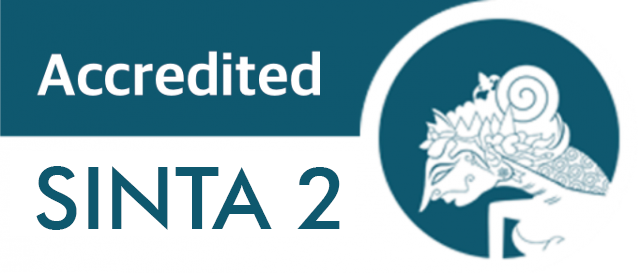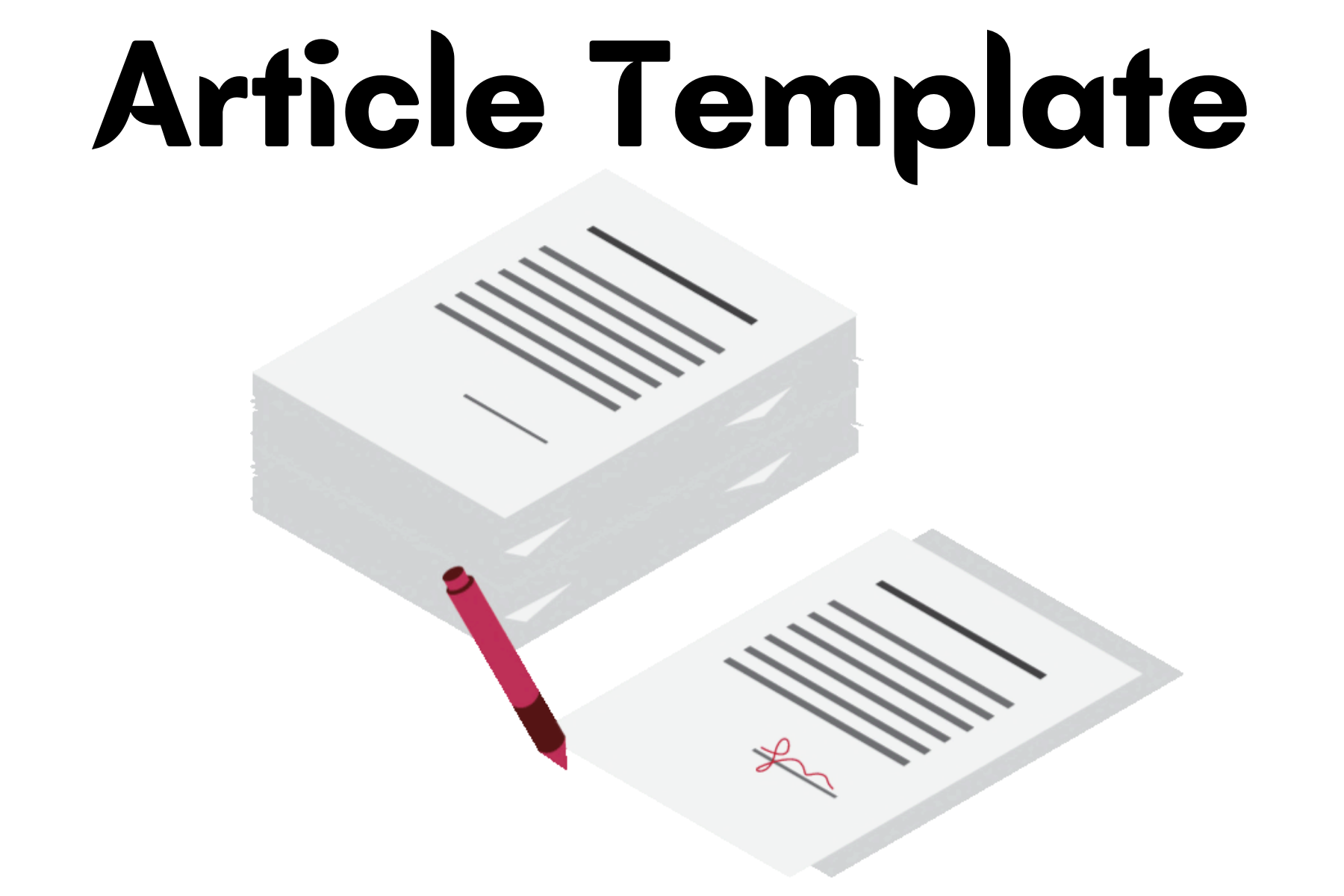Discovery Learning Research in Mathematics Learning (1968-2023): A Bibliometric Review
DOI:
https://doi.org/10.18326/hipotenusa.v5i2.396Keywords:
bibliometric, discovery learning, mathematics learningAbstract
The aim of this research is to identify research developments related to Discovery Learning in mathematics learning. This research uses a bibliometric analysis method by collecting data from the Scopus database. The data is then saved in two formats, namely CSV and RIS. Data in CSV format was analyzed using VOSviewer, while data in RIS format was analyzed using Harzing's Publish or Perish software. This research refers to 72 research sources regarding discovery learning in mathematics learning from 1968 to 2023. The research results show that the number of publications related to discovery learning in mathematics learning continues to increase every year. Publications in 2012 had more than 130 citations, this number exceeds publications in other years. The majority of these publications were found in Q2 category journals, with a total of 28 publications. The focus of this research covers three main areas: 1) learning outcomes, learning environments, and the role of universities; 2) technology and STEM (Science, Technology, Engineering, and Mathematics); 3) problems in teaching mathematics. New themes that emerge in research regarding discovery learning in mathematics learning include STEM, communication, self-confidence, learning activities, creativity, critical thinking, and efficacy. However, the term "Discovery Learning" is not yet directly connected to new concepts such as critical thinking and learning methods. This research provides in-depth insight into the development of Discovery Learning in the context of mathematics learning, as well as a better understanding of the dominant research focus and current trends in this field.
References
Ali, Ö. (2018). Bibliometric analysis of the studies in the field of mathematics education. Educational Research and Reviews, 13(22), 723–734. https://doi.org/10.5897/err2018.3603
Anggraini, R. D., Murni, A., & Sakur. (2018). Differences in students’ learning outcomes between discovery learning and conventional learning models. Journal of Physics: Conference Series, 1088, 0–5. https://doi.org/10.1088/1742-6596/1088/1/012070
Atiyah, U., Miarsyah, M., & Sigit, D. V. (2020). The Effect of Using E-Learning Based Guided Discovery Learning Model Based on Self-Efficacy Towards Student Learning Outcomes In Biology Class in Reproductive System Subject in High School. International Journal for Educational and Vocational Studies, 2(9), 789–796. https://doi.org/10.29103/ijevs.v2i9.2732
Baroody, A. J., Eiland, M. D., Purpura, D. J., & Reid, E. E. (2012). Fostering At-Risk Kindergarten Children’s Number Sense. Cognition and Instruction, 30(4), 435–470. https://doi.org/10.1080/07370008.2012.720152
Barrett, L. K., & Long, B. V. (2012). The Moore Method and the Constructivist Theory of Learning: Was R. L. Moore a Constructivist? PRIMUS, 22(1), 75–84. https://doi.org/10.1080/10511970.2010.493548
Batubara, I. H. (2019). Improving Student’s Critical Thinking Ability Through Guided Discovery Learning Methods Assisted by Geogebra. International Journal for Educational and Vocational Studies, 1(2), 116–119. https://doi.org/10.29103/ijevs.v1i2.1371
Batzel, J. J., Hinghofer-Szalkay, H., Kappel, F., Schneditz, D., Kenner, T., & Goswami, N. (2012). Bridging different perspectives of the physiological and mathematical disciplines. American Journal of Physiology - Advances in Physiology Education, 36(4), 265–274. https://doi.org/10.1152/advan.00074.2012
Bruner, J. S. (1961). The act of discovery. Understanding Children.
DeCaro, M. S., & Johnson, R. (2012). Exploring mathematics problems prepares children to learn from instruction. Journal of Experimental Child Psychology, 113(4), 552–568. https://doi.org/10.1016/j.jecp.2012.06.009
Dewi, S., Sukirman, & Santoso. (2022). The Effectiveness of Discovery Learning Model on Students’ Metacognitive. Journal of Physics: Conference Series, 2309(1), 40–46.
Fahmi, Setiadi, I., Elmawati, D., & Sunardi. (2019). Discovery Learning Method for Training Critical Thinking Skills of Students. European Journal of Education Studies, 6(3), 342–351. https://doi.org/10.5281/zenodo.3345924
Honomichl, R. D., & Chen, Z. (2012). The role of guidance in children’s discovery learning. Wiley Interdisciplinary Reviews: Cognitive Science, 3(6), 615–622. https://doi.org/10.1002/wcs.1199
Hulukati, E., Zakiyah, S., & Rustam, A. (2018). The Effect of Guided Discovery Learning Model with Superitem Test on Students’ Problem-Solving Ability in Mathematics. Journal of Social Science Studies, 5(2), 210. https://doi.org/10.5296/jsss.v5i2.13406
Inde, K. H., Kaleka, M. B. U., & Ilyas, I. (2020). the Effect of Discovery Learning Model on Learning Outcome of Grade-Vii Students of Smpn 5 Nangapanda. Journal of Science Education Research, 4(1), 11–14. https://doi.org/10.21831/jser.v4i1.34233
Julius, R. (2021). Bibliometric Analysis of Research in Mathematics Education using Scopus Database. In Eurasia Journal of Mathematics, Science and Technology Education (Vol. 17, Issue 12). https://doi.org/10.29333/EJMSTE/11329
Kamaluddin, M., & Widjajanti, D. B. (2019). The Impact of Discovery Learning on Students’ Mathematics Learning Outcomes. Journal of Physics: Conference Series, 1320(1). https://doi.org/10.1088/1742-6596/1320/1/012038
Linggile, F., & Payu, C. S. (2022). The Effect of Discovery Learning Based on Blended Learning on Student Learning Outcomes at SMA Negeri 1 Boliyohuto. Jurnal Pendidikan Fisika Dan Teknologi (JPFT), 8(2).
Marchy, F., Murni, A., Kartini, & Muhammad, I. (2022). The Effectiveness of Using Problem Based Learning (PBL) in Mathematics Problem Solving Ability for Junior High School Students. AlphaMath Journal of Mathematics Education, 8(2), 185–198. https://doi.org/10.30595/alphamath.v8i2.15047
Marta, E., Suryani, F. B., & Ismaya, E. A. (2022). The Effectiveness of Think Talk Write and Discovery Learning on Learning Achievement in Elementary School. ANP JOURNAL OF SOCIAL SCIENCE AND HUMANITIES, 2(1), 1–6.
Mayani, I., Suripah, & Muhammad, I. (2022). Analysis of Students’ Errors in Solving Statistical Problems: A Case of 8th Grade Students at SMPN 4 Siak Hulu, Indonesia. Jurnal Pendidikan Mipa, 23(4), 1826–1838. https://doi.org/10.23960/jpmipa/v23i2.pp1827-1838
Moher, D., Liberati, A., Tetzlaff, J., & Douglas. (2009). Preferred eeporting items for systematic reviews and meta-analyzes: The PRISMA statement. Journal of Chinese Integrative Medicine, 7(9), 889–896. https://doi.org/https://doi.org/10.1136/bmj.b2535
Muhammad, I., Marchy, F., Do, A., & Naser, M. (2023). Analisis Bibliometrik : Tren Penelitian Etnomatematika dalam Pembelajaran Matematika Di Indonesia ( 2017 – 2022 ). JIPM (Jurnal Ilmiah Pendidikan Matematika), 11(2), 267–279. https://doi.org/10.25273/jipm.v11i2.14085
Muhammad, I., Marchy, F., Rusyid, H. K., & Dasari, D. (2022). Analisis Bibliometrik : Penelitian Augmented Reality Dalam Pendidikan Matematika. JIPM (Jurnal Ilmiah Pendidikan Matematika), 11(1), 141–155. https://doi.org/10.25273/jipm.v11i1.13818
Muhammad, I., & Yolanda, F. (2022). Minat Belajar Siswa Terhadap Penggunaan Software Adobe Flash Cs6 Profesional Sebagai Media Pembelajaran. JIPM (Jurnal Ilmiah Pendidikan Matematika), 11(1), 1–12. https://doi.org/10.25273/jipm.v11i1.11083
Novantri, W., Maison, M., Muslim, M., & Aftriyati, L. W. (2020). Discovery learning layak diterapkan pada pembelajaran matematika karena memiliki pengaruh yang lebih baik terhadap hasil belajar. Indonesian Journal of Science and Mathematics Education, 3(2), 144–152. https://doi.org/10.24042/ijsme.v3i2.6615
Ponidi, P., Waziana, W., Kristina, M., & Gumanti, M. (2020). Model of Utilizing Discovery Learning to Improve Mathematical Learning Achievements. Attractive : Innovative Education Journal, 2(1), 41. https://doi.org/10.51278/aj.v2i1.27
Pratiwi, N. I., & Miriam, S. (2022). Model of Discovery learning in Science Learning : Bibliometric Analysis of the Current State of the art and Perspectives. Journal of Mathematics, Science, and Computer Education (JMSCEdu), 2, 114–127.
Purwaningsih, E., Sari, S. P., Sari, A. M., & Suryadi, A. (2020). The effect of stem-pjbl and discovery learning on improving students’ problem-solving skills of the impulse and momentum topic. Jurnal Pendidikan IPA Indonesia, 9(4), 465–476. https://doi.org/10.15294/jpii.v9i4.26432
Putriani, D., & Rahayu, C. (2018). The Effect of Discovery Learning Model Using Sunflowers in Circles on Mathematics Learning Outcomes. International Journal of Trends in Mathematics Education Research, 1(1), 22–25. https://doi.org/10.33122/ijtmer.v1i1.26
Ramdhani, M. R., Usodo, B., & Subanti, S. (2017). Discovery Learning with Scientific Approach on Geometry. Journal of Physics: Conference Series, 895(1). https://doi.org/10.1088/1742-6596/895/1/012033
Simamora, R. E., Saragih, S., & Hasratuddin, H. (2018). Improving Students’ Mathematical Problem Solving Ability and Self-Efficacy through Guided Discovery Learning in Local Culture Context. International Electronic Journal of Mathematics Education, 14(1), 61–72. https://doi.org/10.12973/iejme/3966
Sudarsana, I. K., Nakayanti, A. R., Sapta, A., Haimah, Satria, E., Saddhono, K., Achmad Daengs, G. S., Putut, E., Helda, T., & Mursalin, M. (2019). Technology Application in Education and Learning Process. Journal of Physics: Conference Series, 1363(1). https://doi.org/10.1088/1742-6596/1363/1/012061
Sunarsih, S., Rahayuningsih, M., & Setiati, N. (2020). The Development of Biodiversity Module Using Discovery Learning Based on Local Potential of Wonosobo. Jise (Journal of Innovative Science Education), 9(1), 1–11. http://journal.unnes.ac.id/sju/index.php/jise
Suratno, J., Tonra, W. S., & Ardiana. (2019). The effect of guided discovery learning on students’ mathematical communication skill. AIP Conference Proceedings, 2194(December), 1–7. https://doi.org/10.1063/1.5139851
Syarif, E., Syamsunardi, S., & Saputro, A. (2020). Implementation of Discovery Learning to Improve Scientific and Cognitive Attitude of Students. Journal of Educational Science and Technology (EST), 6(1), 23–31. https://doi.org/10.26858/est.v6i1.11975
Tanjung, D. F., Syahputra, E., & Irvan, I. (2020). Problem Based Learning, Discovery Learning, and Open Ended Models: An experiment On Mathematical Problem Solving Ability. JTAM | Jurnal Teori Dan Aplikasi Matematika, 4(1), 9. https://doi.org/10.31764/jtam.v4i1.1736
Wicaksono, A. G., Sunarno, W., Ashadi, & Adi Prayitno, B. (2021). Research Trends of Discovery Learning from 2015 to 2019: A Bibliometric Analysis. Journal of Physics: Conference Series, 1842(1). https://doi.org/10.1088/1742-6596/1842/1/012026
Widyanti, Zetriuslita, Suripah, & Qudsi, R. (2021). Pengembangan Perangkat Pembelajaran Matematika Berbasis Kontekstual pada Materi Kubus dan Balok Kelas VIII SMP. Jurnal Pendidikan Matematika Raflesia, 06(03), 47–57.
Winita, S., Ramadhan, S., & Asri, Y. (2020). The Development of Electronic Module Based on Discovery Learning in Writing Explanation Text. Advances in Social Science, Education and Humanities Research, 463, 63–69. https://doi.org/10.2991/assehr.k.200819.013
Yadi, H. F., & Nirwana, H. (2023). Discovery Learning Sebagai Teori Belajar Populer Lanjutan. Eductum: Jurnal Literasi Pendidikan, 1(2), 234–245.
Yuliana, Tasari, & Wijayanti, S. (2017). The Effectiveness of Guided Discovery Learning to Teach Integral Calculus for the Mathematics Students of Mathematics Education Widya Dharma University. Infinity Journal, 6(1), 01. https://doi.org/10.22460/infinity.v6i1.222
Downloads
Published
How to Cite
Issue
Section
License
Copyright (c) 2023 Ilham Muhammad, Dadang Juandi

This work is licensed under a Creative Commons Attribution-NonCommercial-ShareAlike 4.0 International License.

This work is licensed under a Creative Commons Attribution-ShareAlike 4.0 International License.






